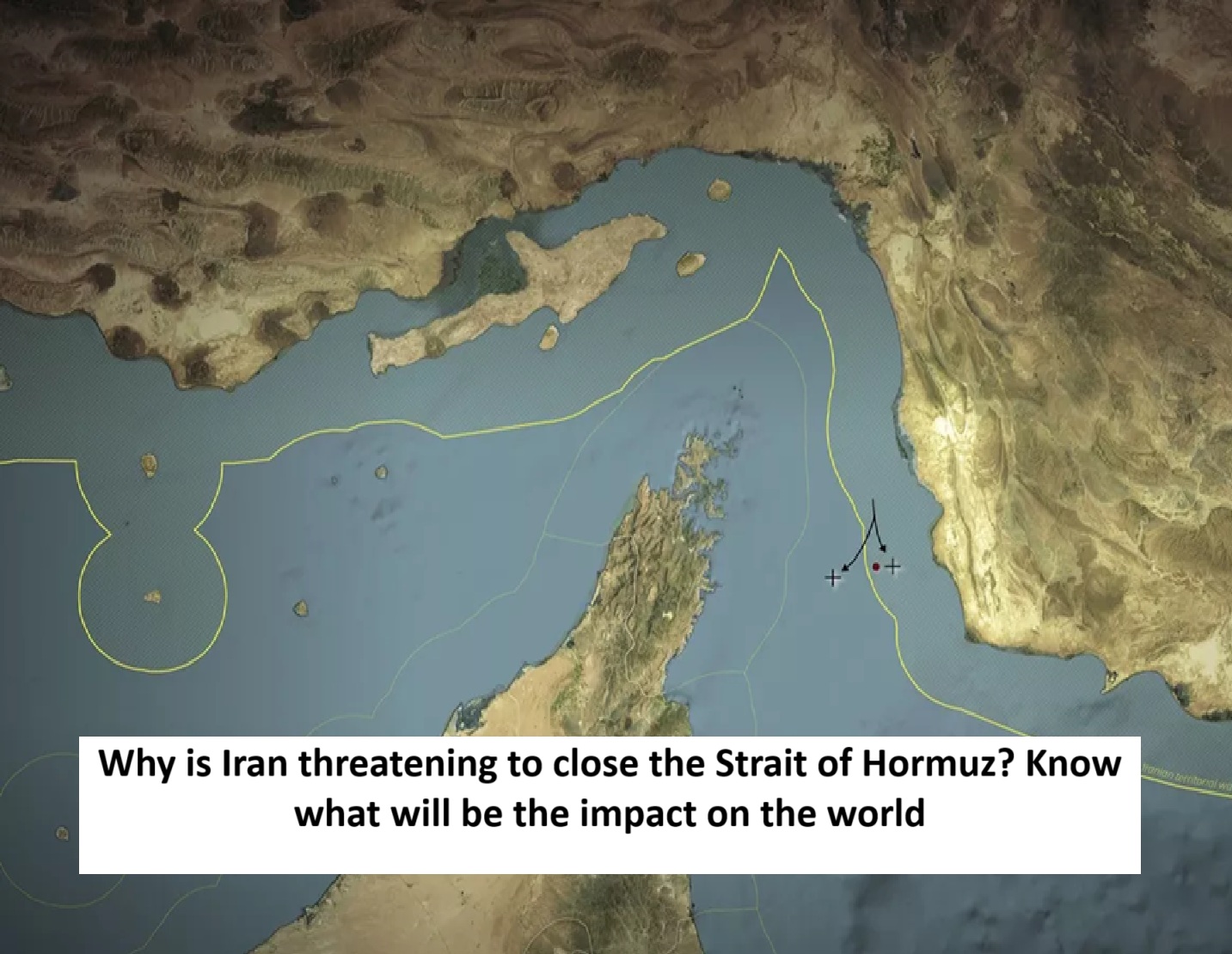
News Topical, Digital Desk : Israel attacked Iran on June 13. Israel said that its attack was to stop Tehran from making nuclear weapons and for this Israel launched a long campaign and during this time it targeted nuclear facilities, ballistic missile factories and military commanders.
Experts on the ongoing conflict between Iran and Israel say that if Iran closes the Strait of Hormuz, the prices of crude oil and LNG (Liquefied Natural Gas) may increase. Countries like India import crude oil from Saudi Arabia, Iraq and UAE through the Strait route.
What is the Strait of Hormuz?
The Strait of Hormuz is a sea strip about 40 kilometers wide between Oman and Iran. Saudi Arabia (6.3 million barrels per day), UAE, Kuwait, Qatar, Iraq (3.3 million barrels per day) and Iran (1.3 million barrels per day) export crude oil through this route.
About 20 percent of the global LNG trade goes through this. This includes almost all LNG exports from Qatar and UAE. Motilal Oswal said in his comment that there is no alternative route available for this liquefied natural gas (LNG). India imports LNG along with oil from Saudi Arabia, Iraq and UAE through this route.
Why does it matter?
About a fifth of the world's total oil consumption passes through the strait. Between the start of 2022 and last month, about 17.8 million to 20.8 million barrels of crude oil, condensate and fuel flowed through the strait daily, according to data from Vortexa.
UAE and Saudi Arabia are looking for bypass
OPEC members Saudi Arabia, Iran, the United Arab Emirates, Kuwait and Iraq export most of their crude oil through the strait, mainly to Asia. The UAE and Saudi Arabia have tried to find other routes to bypass the strait.
The US Energy Information Administration said in June last year that about 2.6 million bpd of unused capacity from existing UAE and Saudi pipelines could be available to bypass Hormuz.
Qatar, one of the world's largest liquefied natural gas exporters, ships nearly all the LNG it sends through the strait. Iran has threatened to block the strait for years but has never followed through. The US Fifth Fleet, based in Bahrain, is tasked with protecting commercial shipping in the region.
History of stress
In 1973, Arab producers led by Saudi Arabia imposed an oil embargo on Israel's Western supporters in its war with Egypt. While at that time the main buyers of crude oil produced by Arab countries were Western countries, nowadays Asia is the main buyer of OPEC's crude oil.
Over the past two decades the United States has more than doubled its oil liquids production and gone from being the world’s largest oil importer to one of the top exporters.
Iran–Iraq War
During the Iran–Iraq War of 1980–1988, both sides tried to disrupt each other's exports in what became known as the Tanker War.
In July 1988, a US warship shot down an Iranian airliner, killing all 290 people on board, in what Washington described as an accident and Tehran said was a deliberate attack.
Attack off UAE coast outside Strait of Hormuz
In January 2012, Iran threatened to block the strait in retaliation for US and European sanctions. In May 2019, four ships – including two Saudi oil tankers – were attacked off the UAE coast, outside the Strait of Hormuz.
Attack on Israeli-managed oil tanker
In July 2021, an Israeli-managed oil tanker was attacked off the coast of Oman, killing two crew members, an incident which Israel blamed on Iran, which Iran denied.
--Advertisement--

 Share
Share


